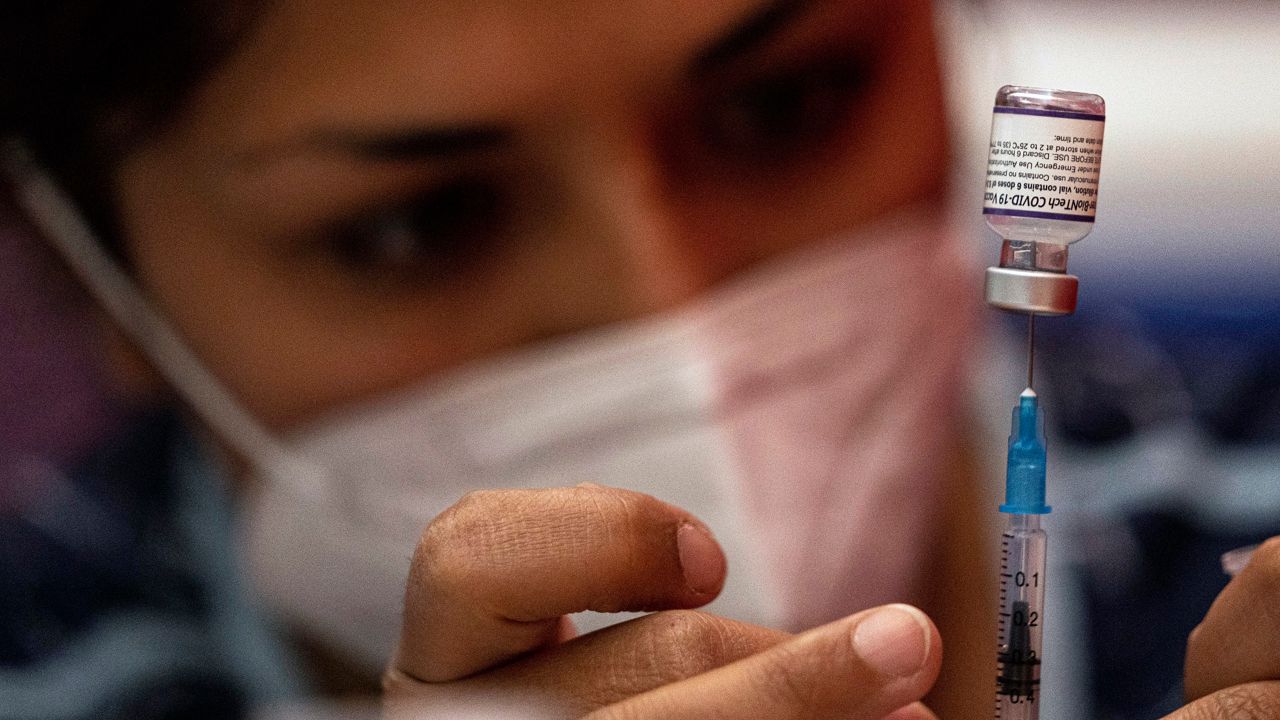Updated COVID-19 vaccine boosters are expected to be rolled out “in a few short weeks,” the White House’s coronavirus response coordinator said Wednesday.
What You Need To Know
- Updated COVID-19 vaccine boosters are expected to be rolled out “in a few short weeks,” Dr. Ashish Jha, the White House’s coronavirus response coordinator, said Wednesday
- In June, the Food and Drug Administration directed vaccine manufacturers to change their designs to start targeting the omicron BA.4 and BA.5 subvariants
- U.S. regulators must first sign off on the new vaccines
- The next-generation vaccines are expected to be bivalent, meaning they’ll target the new subvariants as well as the original strain first detected in Wuhan, China, in 2019
In June, the Food and Drug Administration directed vaccine manufacturers to change their designs to start targeting the omicron BA.4 and BA.5 subvariants.
Dr. Ashish Jha, who leads the White House’s COVID-19 response, told NBC News, “the vaccines that are coming in a few short weeks are specifically designed for the virus that's out there.”
Speaking at a U.S. Chamber of Commerce Foundation event earlier in the week, Jha more precisely put the timeline at early to mid-September.
U.S. regulators must first sign off on the new vaccines.
“The bottom line is that this virus has evolved substantially since the first vaccines were built,” Jha told NBC News. “This is why we've seen waning immunity.”
Jha said he expects the shots to be available to anyone who is eligible and at least 12 years old.
According to the CDC, the United States is recording about 100,000 new infections a day, although that is believed to be a vast undercount due to at-home tests that are not reported to health agencies and fewer states providing updates. Around 400 Americans a day are dying from the virus.
The BA.4 and BA.5 variants are accounting for 99% of new infections, according to CDC data.
The next-generation vaccines are expected to be bivalent, meaning they’ll target the new subvariants as well as the original strain first detected in Wuhan, China, in 2019.
The federal government has agreed to purchase 105 million doses of Pfizer’s updated vaccine and 66 million of Moderna’s, with options to buy more at a later time.
On Monday, the United Kingdom became the first country to authorize Moderna’s updated vaccine, although that version targets BA.1 instead of BA.4 and BA.5. Yet Moderna said its clinical trials found it to increase neutralizing antibodies against BA.4 and BA.5 by 1.69 times compared to those who received the original booster.
But in an interview with CNN on Thursday, Dr. Paul Offit, director of the Vaccine Education Center at Children’s Hospital of Philadelphia and a member of the FDA advisory committee, said the data presented by Pfizer and Moderna on their BA.1-targeting vaccines was “pretty underwhelming” because it did not show they provided significantly better protection than the current boosters against severe illness. That prompted the FDA to ask for shots that would better combat BA.4 and BA.5.
Offit said that for the updated vaccines to be authorized by September or October, “we're going to have to see data in people showing that you have an immune response that is dramatically better than what we saw at the end of June.”
Getting Americans boosted has been a struggle. About two-thirds of residents were vaccinated initially, and fewer than half of those have received at least one booster shot.
Jha told NBC News “two shots is not enough.”
At the Chamber of Commerce Foundation event, he said: "Our health care system is going to get into serious trouble unless we are very proactive about preventing it (the spread of COVID-19). So if we do nothing and just sort of hope for the best, I think we could end up getting into a lot of trouble this fall and winter.”



